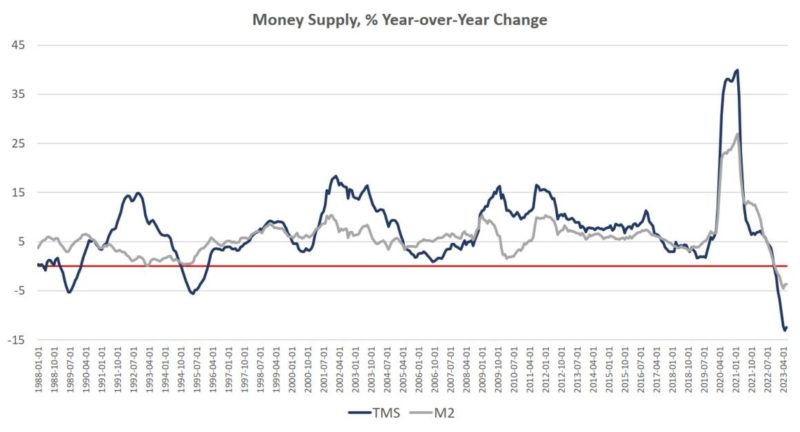Category Archive: 6b.) Mises.org
“National Greatness” Is Not the Appropriate Response to “Wokeism”
Up from Conservatism: Revitalizing the Right after a Generation of DecayEdited by Arthur MilikhEncounter Books, 2023; 328 pp.
The contributors to Up from Conservatism, most of whom are associated with the Claremont Institute, think that “movement” conservatism has failed, in large part through acceptance of the premises of the Left. The Right needs to carry the battle to the enemy, aiming at its destruction and its replacement by a sounder regime....
Read More »
Read More »
Cultural Change Is Necessary for Capital Development
In order for nations to have capital development and market-based economies, they must have a cultural framework that accepts these developments. Too many nations do not, and they languish in poverty as a result.
Original Article: "Cultural Change Is Necessary for Capital Development"
Read More »
Read More »
The Problem with Public Transit
A friend of mine works for the public sector, in transit specifically. When I asked him to tell me what value he saw in “public transit” for society, he replied,
You must be from the stone ages! Public transit fulfills an important function. It provides transportation for folks who can’t afford the private solutions, and also solves the problem of congestion and pollution in crowded cities. And it can do some of this better than private enterprise,...
Read More »
Read More »
The Debt Ceiling Debate Was Pure Theater
When it comes to the debt ceiling, political parties are irrelevant, and the recent debt ceiling drama, was little more than a sham.
Original Article: "The Debt Ceiling Debate Was Pure Theater"
Read More »
Read More »
Lost Continetti: A Neoconservative History of the Right
[The Right: The Hundred-Year War for American Conservatism. By Matthew Continetti. Basic Books, 2022. 503 pages, Amazon Kindle Edition.]
Why should we be interested in this book? At first glance, it appears that we shouldn’t be. Though the history of American conservatism is of great importance, and the author has amassed a great deal of information about it, he lacks an illuminating analytic framework; the “history” he recounts is little more than...
Read More »
Read More »
The Propaganda of “Bidenomics”
The Biden Administration is attempting to take a victory lap for "Bidenomics," but the public isn't buying it. On this episode of Good Money, Dr. Jonathan Newman joins the show to talk about his doubts of a "soft landing" for the economy, and the lies being told to sell Central Bank Digital Currencies.
Jonathan Newman's article on CBDCs: Mises.org/GM18a
Jonathan Newman's article on "Soft Landing" headlines...
Read More »
Read More »
Austrian Economics in Nigeria
On this episode of Radio Rothbard, Ryan McMaken and Tho Bishop are joined by Econ Bro, the founder of Nigerian Liberty, which offers seminars in Austrian economics in Nigeria. The three discuss the inflation crisis in Nigeria, the cultural consequences of rising prices in the country, and the costs of the state capture of its petrol industry.
To learn more about Nigerian Liberty, visit NigerianLiberty.com.
View Econ Bro's Substack...
Read More »
Read More »
Easy Money Is a Much Bigger Economic Problem than Debt
Many economic commentators view debt as a major risk factor as far as economic health is concerned. This way of thinking has its origins in the writings of Irving Fisher. According to Fisher, the high level of debt runs the risk of setting in motion deflation and, in turn, a severe economic slump. According to Fisher, the high level of debt sets in motion the following sequence of events.
Stage 1: The debt liquidation process is set in motion...
Read More »
Read More »
Bidenomics Is Yet Another Version of Failed Industrial Policy
President Biden announced recently to much fanfare that his administration will transform the US economy through central planning. This does not end well.
Original Article: "Bidenomics Is Yet Another Version of Failed Industrial Policy"
Read More »
Read More »
Against Our Limitless Regime: An Empire of Lies
From war across the globe to regulating speech to printing trillions of dollars, the American regime accepts no limits on its power. As Ludwig von Mises understood, the state will take as much power as the people will let it, and in recent years the American regime has clearly concluded it can get away with unilaterally adopting vast new powers.
Join the Mises Institute in Nashville on September 23rd for an event inspired by this siege of power and...
Read More »
Read More »
Voting with Their Feet: The Lure of Migration
The exodus of human capital is a primary concern for developing countries wishing to stem the tide of emigration. Some believe that emigration prevents poor countries from capitalizing on the talents of their best people. Critics suggest that poor countries would excel if the smartest minds did not emigrate. Theoretically, this sounds plausible; however, it obscures the inspiration for emigration.
If underperforming countries could equip their...
Read More »
Read More »
Why Governments Hate Honest Money
The middle class in all developed economies is disappearing through a constant process of erosion of its capacity to climb the social ladder. This is happening in the middle of massive so-called stimulus plans, large entitlement programs, endless deficit spending, and “social” programs.
The reality is that those who blame capitalism and free markets for the constant erosion of the middle class should think better of it. Massive money printing and...
Read More »
Read More »
Pennsylvania Legislators Want Higher Unemployment, Government Dependency, and Crime
Pennsylvania legislators don't claim to be putting people out of work or killing job opportunities. They claim they just want workers to earn more pay.
Original Article: "Pennsylvania Legislators Want Higher Unemployment, Government Dependency, and Crime"
Read More »
Read More »
Big Governments’ One-Two Punch: Scope Creep, Then Wartime Deprivation
Voluntary cooperation gets commandeered by the government gradually in peacetime, then suddenly through war.
Peace, then World War I
Starting in 1894, the USA no longer had a small-government major party. In both major parties, majorities of elected representatives were the USA’s crony-socialist Progressives.
Immediately, Progressives began working to consolidate their political control. They replaced voter-informing caucuses with voter-isolating...
Read More »
Read More »
The Soviet Abuse of Indigenous Peoples
Socialists and communists claim to support the rights of "indigenous" peoples. However, that support rings hollow given how the USSR abused the native peoples of Siberia, all while American socialists and communists uncritically supported the Soviet Union.
Original Article: "The Soviet Abuse of Indigenous Peoples"
Read More »
Read More »
Politics Has Infected Everything in Our Society, Especially the Media
One of the few things that most Americans agree about today is that there are serious problems with the current news-media environment. Conservatives have spent decades denouncing the “liberal media,” labeling it a thinly veiled arm of the Democratic Party and, recently, of Big Pharma. Meanwhile, Progressives seem to blame billionaire-created Fox News for just about every problem facing America.
Even the establishment media folks are fretting over...
Read More »
Read More »
Credit Crunch: The Money Supply Has Shrunk For Eight Months In a Row
Money supply growth fell again in June, remaining deep in negative territory after turning negative in November 2022 for the first time in twenty-eight years. June's drop continues a steep downward trend from the unprecedented highs experienced during much of the past two years.
Since April 2021, money supply growth has slowed quickly, and since November, we've been seeing the money supply repeatedly contract—year-over-year— for six months in a...
Read More »
Read More »
Liberalism and Peace
Recorded at the 2003 Supporters Summit: Prosperty, War, and Depression. Ralph Raico discusses how from Jefferson to Madison, and on to Bastiat, Molinari, and Spencer, the "classical" liberals routinely denounced war as the enemy of freedom, prudence, and natural rights. Instead, militarism and imperialism have long been the domain of the enemies of private property and other apologists for the state.
(32:19)
Read More »
Read More »
States Can Curb Federal Power through “Soft Secession”
The use of interstate compacts by US states shows that the states don't need the federal government to dictate or manage interstate relations.
Original Article: "States Can Curb Federal Power through "Soft Secession""
Read More »
Read More »
Breaking Free: How Open Protocols Foster Entrepreneurship, Spontaneous Order, and Individual Sovereignty
In the dynamic and ever-evolving digital landscape, open protocols have emerged as a powerful force, challenging closed-source models and reshaping industries. Beyond their technical merits, open protocols embody fundamental economic principles that foster innovation, competition, decentralized decision-making, and even censorship resistance. By embracing open protocols, societies can harness the creative energies of individuals and entrepreneurs,...
Read More »
Read More »



























